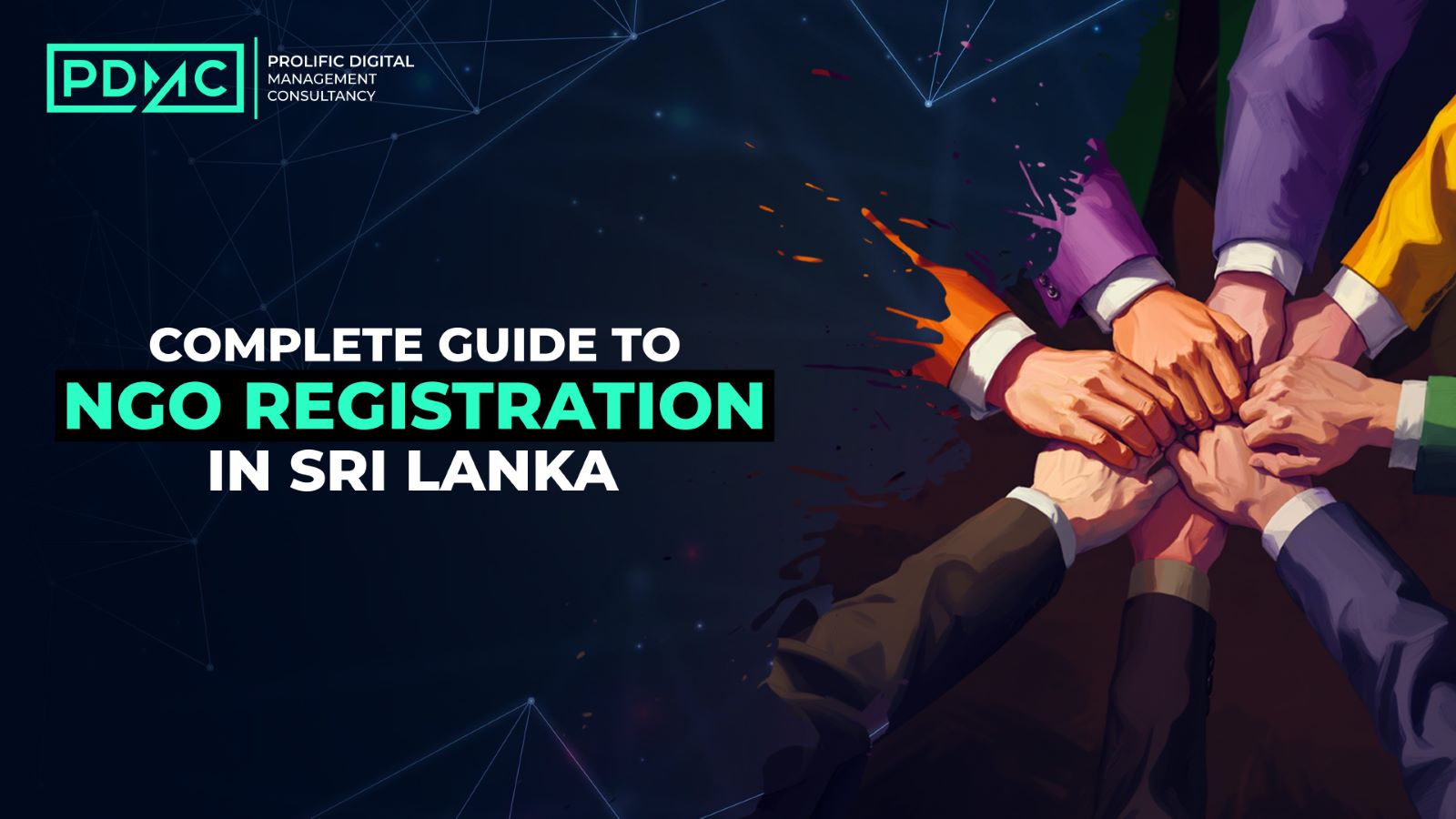Blog
How to Start a Business in Sri Lanka: The Ultimate Reference
1 Aug 2024
Introduction
The Sri Lankan market presents a good opportunity for business as it is a developing economy with a population of approximately 22 million. The country offers a favourable environment for new ventures, especially the region's small and medium-sized enterprises (SMEs).
This guide is designed to give a step-by-step guide on starting a business in Sri Lanka, even for those without experience.
Thus, knowing the local market and regulations and using available resources can improve your chances of success.
Step 1: Generate a Creative Business Idea
It is important to have a novel business idea that can solve certain problems or meet certain needs in the market before venturing into business.
Here are some examples to consider:
Online Store
Establish an online store that deals in apparel, shoes, accessories, gadgets, etc. This model has the advantage of increasing with the popularity of online shopping.
For example, you could focus on producing environmentally friendly products to meet the growing market for green products.
Cloud Kitchen
Open a restaurant that only delivers food since the demand for food delivery services is rising. This can be a good strategy to enter the food industry since it can be cheaper than other methods. You could have a limited menu targeting certain demographics, such as a veg or non-veg menu.
Web Development
Provide web design and development solutions to clients within the country and from other parts of the world. With the increase in the number of companies going online, there is a need for good web developers. Emphasise your strengths in such fields as e-commerce solutions or responsive design.
Digital Marketing
Offer marketing solutions to assist companies in improving their online presence. This includes SEO, Social Media Marketing, and content creation.
It is also suggested to focus on a specific sector, for example, hospitality or healthcare to differentiate from the competitors.
Tutor (Online or Physical)
Provide homework help to students in different subjects online or face to face. Education is one of the developing sectors, and there is a demand for teachers in both urban and rural areas. It could be on exam preparation, learning language or skills development.
Realeted: How to become a teacher in Sri Lanka
Step 2: Market Research and Business Plan
Once you have a business idea, the next step is to research to know your target market and their needs.
This involves:
Understanding the customer needs and how your business can solve them. This assists in satisfying the market needs by providing appropriate products. For instance, if you realise there is a shortage of cheap healthy foods, your cloud kitchen could provide that.
Conducting a competitor analysis to identify how they address similar issues and look for better or more efficient ways. This provides you with information on market trends and competitors’ activities. Identify their advantages and disadvantages to determine how to stand out from the competition.
A detailed business plan entails market research, implementation strategies, and the business’s financial plan. A good business plan is essential for managing your business and attracting investors. This should contain specific strategies for marketing, operations, and financial management.
Step 3: Naming Your Business
Selecting an appropriate business name that the clients will easily remember is crucial.
Related: Sri Lanka Business Name Ideas & Generator
Here are some tips:
Ensure that the name reflects what you sell or offer to your customers. It should provide a clue of what the business is all about. For example, the store's name, “EcoGoods”, immediately gives the idea that the store deals with environmentally friendly products.
Ensure that the name is easy to remember and can be easy to pronounce by anyone. This is useful in brand recall. Do not use names that are very long or difficult to pronounce or remember.
Carry out a name search to check whether the name is already in use. Do not get into legal complications by checking trademarks. You can search for the information in the online databases or address to the legal expert.
Consult friends and relatives on the possible names to be used to hear their opinions. This can give new angles and concepts to consider. Consider how the name will sound in other languages if you plan to go global.
Step 4: Funding for Your Business
Every business venture needs capital to start and operate the business.
Here are some ways to secure funding:
Savings
You should use your own money to fund your business since it is the best source of capital. This is the most direct way of sourcing capital to fund your business without borrowing.
Loans from friends or relatives
Take a loan from friends or relatives that you trust and are willing to help you out. Ensure that you have agreed on the repayment terms so that there is no confusion in the future.
Bank loans
Take a business loan from a bank. This calls for a good business plan and credit standing. Be ready to explain your business idea and the expected revenues and expenses.
Attracting investors
Use the business plan to seek funding from investors to finance your business. Investors can offer not only the financial capital but also the business experience and contacts. Search for Investors or venture capitalists willing to invest in your line of business.
Step 5: Business Registration
Business registration is important to meet the business's legal requirements.
In Sri Lanka, you can register your business in different forms:
Sole Proprietorship Registration
Especially suitable for small businesses run by one person. It is easier to establish and has less legal formalities to adhere to. However, the owner has unlimited liability.
Partnership
Ideal for companies that two or more people own. A partnership is a type of business structure where the profits and risks are divided between the partners. A clear understanding of who is to do what in the partnership should exist.
Private Limited Company
Most suitable for those companies that seek a certain degree of legal protection and a separate legal personality. It is slightly more complicated but provides more personal asset protection. This structure is suitable for companies that anticipate expansion in the future.
Getting a business registration certificate is crucial to legalise your business activities in all the above forms of business.
This certificate is a legal document that proves the existence of your business and is useful for activities like applying for a bank account for your entity.
Related - How to Register Private Limited Company
Step 6: Create an Online Presence
In today's digital world, having a business with a professional online presence is crucial.
This includes:
Creating an easily navigable and appealing website. Your website is usually the first touch point with the customer. Ensure it is simple to use and contains all the information a client may need regarding your products or services.
Creating accounts on social media platforms such as Facebook, Instagram, and LinkedIn to expand the coverage. Social media can be useful in creating a community around your brand and interacting with the clients. This can be used for marketing purposes too.
Optimising your site for search engines to enhance its ranking on the search engine result pages. This, in turn, increases the organic traffic to your site. Optimise your content, meta descriptions and tags with the right keywords to improve your SEO.
Step 7: Marketing Your Business
Marketing is very important in order to attract customers and expand your company. Consider the following strategies:
Offline Marketing
Word of mouth, brochures, and leaflets should be used to target the local customers. These methods can be especially useful in small towns where people trust their friends and close contacts.
Online Marketing
Use email newsletters, social media, and SEO to expand the reach of the organisation’s message. Online marketing has a broader coverage area and more precise targeting. Marketing should be monitored and analysed to determine the effectiveness of the strategies that are being implemented.

PDMC can be a good supplement for your new businesses. We offer professional advice on different aspects of starting and running a business. We can assist you in understanding the business environment in Sri Lanka due to our experience.
Conclusion
The process of starting a business in Sri Lanka can be divided into several stages, starting from the creation of a business idea to the promotion of the product or service. Thus, reading this guide gives you a general idea of how to think before starting a business.
It is crucial to always update yourself with the local laws and ensure that you are always in line with the market trends. The road may not be easy, but anyone can become an entrepreneur with the right attitude and tools.




